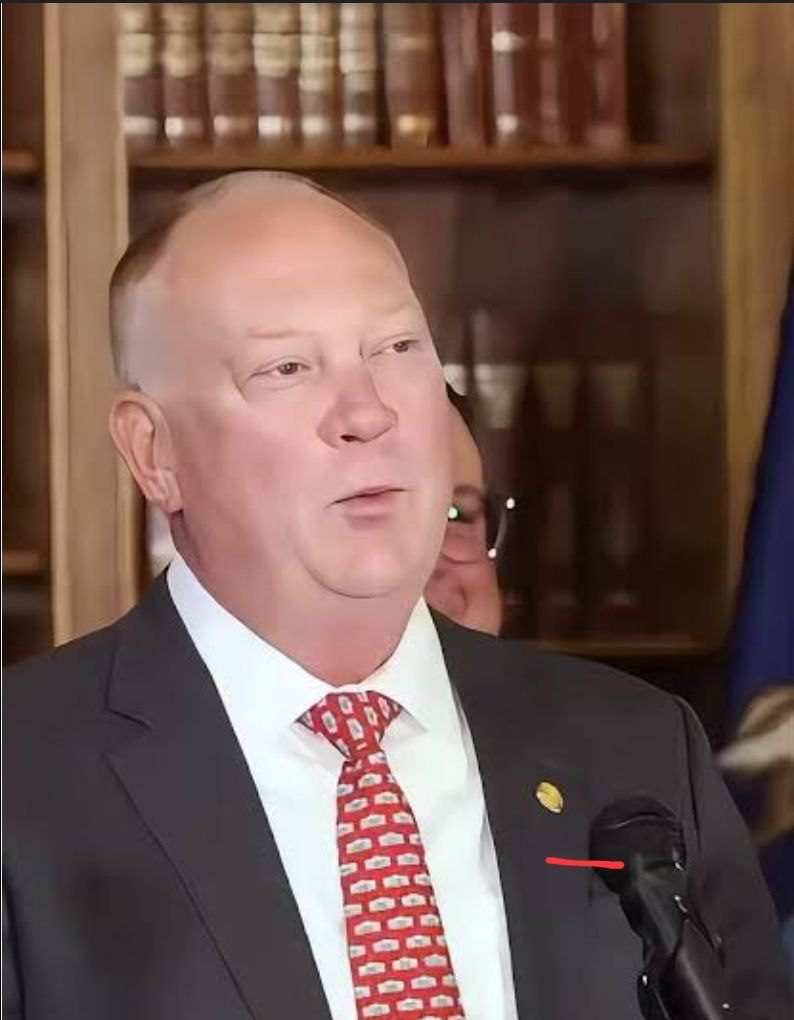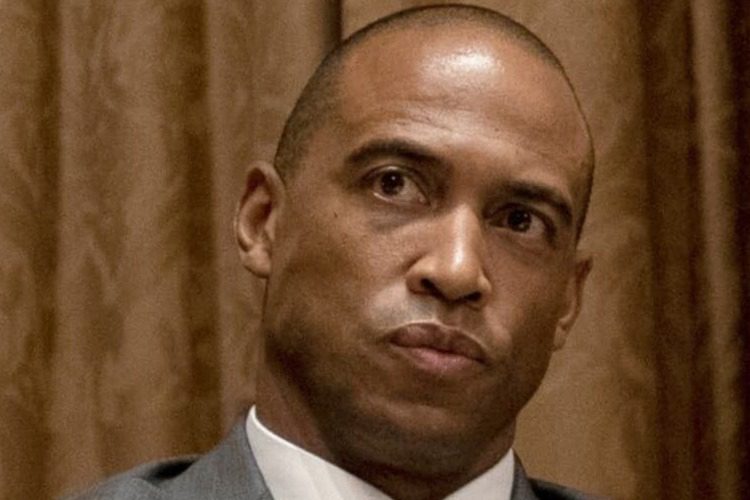Republicans Say 4,277 Phantom Jobs and $5 Billion in Waste Exposed in Michigan Budget Fight — Is This the State’s Biggest Scandal Yet?
When a story about government waste breaks, it usually gets tucked into budget reports and long committee hearings that most people never hear about. But this week, something different happened in Michigan. A storm erupted after Republican lawmakers claimed they had uncovered one of the most shocking budget scandals the state has seen in years: more than four thousand “phantom jobs” and billions of dollars in spending that they say were never real in the first place.
The numbers themselves are what first made people’s jaws drop — 4,277 jobs. That’s not a typo, not a rounding error, but thousands of supposed state positions that Republicans argue simply didn’t exist. Alongside those numbers came a figure that’s even harder to ignore: five billion dollars. According to GOP leaders, that money represents waste, fraud, and abuse baked into the state budget under Democratic leadership. And as one lawmaker bluntly put it, “You guys realize what a scandal this is?”

The accusations cut straight to the heart of Michigan politics. Governor Gretchen Whitmer and Democratic leaders have celebrated recent budgets as investments in infrastructure, social programs, and communities. Republicans, on the other hand, are painting a much darker picture, one where taxpayer money is being funneled into empty positions, unnecessary programs, or projects that sound more like partisan wish lists than public needs.
For everyday people, scandals like this don’t always make sense at first glance. After all, most of us don’t read budget line items or follow committee debates late into the night. But when you hear that billions of dollars may have been spent without accountability, it suddenly feels personal. Because five billion dollars isn’t just numbers on paper — it’s money that could have gone to schools struggling to buy new textbooks, hospitals short on beds, roads filled with potholes, or local police and fire departments trying to stretch thin budgets.
Republicans in the state legislature say they found the phantom jobs while combing through budget details that had been approved by Democrats in previous cycles. In their telling, these weren’t positions that were simply unfilled for a few months, as sometimes happens when government struggles to hire. Instead, they describe them as “ghost jobs” — salaries written into the books, funded with real dollars, but attached to no real employees.
If that’s true, the question becomes: where did the money go? Republicans argue it was siphoned off into programs and spending categories that are hard for the public to track, including grants, administrative overhead, and what they describe as politically motivated projects. Some partisan outlets and social media voices have gone further, accusing Democrats of using the funds for controversial programs like gender-affirming surgeries for prisoners or arts grants that critics say had little public benefit. But here’s the key: none of those claims have yet been confirmed by independent audits or mainstream reporting.
That’s what makes this story both explosive and frustrating. On one side, you have Republicans ringing alarm bells and pointing to billions in alleged waste. On the other, you have Democrats defending their budgets, pointing out that no official audit or investigation has yet proven fraud or criminal behavior. And in the middle are regular Michiganders, who just want to know the truth about how their tax dollars are being spent.

The political stakes are enormous. Michigan isn’t just any state; it’s a battleground in national elections, a place where Democrats and Republicans fight tooth and nail for every seat and every vote. A scandal of this size, if proven true, could reshape not only Lansing politics but also ripple into the national conversation ahead of the 2026 elections. Already, right-leaning media outlets are seizing on the story, calling it proof that Democratic governance leads to corruption. Progressive voices, meanwhile, are warning that Republicans may be exaggerating or misrepresenting normal budget practices in order to score political points.
So where does the truth lie? At this stage, the reality is that much of the reporting has come from partisan outlets or social media influencers, not from the state’s main newspapers or independent auditors. The Detroit Free Press, MLive, and the Associated Press have not published in-depth confirmations of the fraud figures. Until they do, or until an official state audit is released, what we’re left with are accusations — powerful, headline-grabbing accusations, but still unverified.
That doesn’t mean the story should be dismissed. Even the suggestion of thousands of fake jobs and billions in questionable spending deserves serious attention. State budgets are complicated, and it’s possible for both waste and misunderstanding to coexist. For example, some positions may have been authorized in case of future hiring needs but never filled, which could look suspicious on paper but not necessarily amount to fraud. At the same time, governments do sometimes bury pet projects in budget lines, a practice critics have long called “pork spending.”
The next steps will likely involve Michigan’s independent auditors, watchdog groups, or possibly even federal investigators, depending on how loud the scandal grows. If Republicans are correct, the numbers they cite could mark one of the largest examples of budgetary abuse in state history. If Democrats can prove the jobs were accounted for properly, it may end up being a story about political spin more than fraud.
But beyond politics, there’s a human element to this story. Every dollar that isn’t used wisely by government is a dollar that could have changed someone’s life. Think of the families waiting for safer roads, the teachers buying supplies out of their own pockets, the small businesses struggling under high taxes. When people hear about “phantom jobs,” what they really hear is that money meant for the public good may have slipped away into the shadows. That’s why even the whisper of a scandal like this resonates so deeply.
For now, Michigan residents are left in limbo, caught between competing narratives. Republicans say they’ve uncovered fraud on a scale that should shock the nation. Democrats insist their budgets reflect investments in the future, not corruption. And the truth, somewhere in between, still needs to be pulled into the light.
What is clear is that this story isn’t going away anytime soon. As hearings, audits, and investigations unfold, more details will emerge. And for the sake of trust in government, Michigan deserves answers. Whether the phantom jobs turn out to be real ghosts or just political shadows, the people paying the bills — the taxpayers — deserve transparency, accountability, and the truth.
Because at the end of the day, no matter which side of the aisle you stand on, five billion dollars is too much money to just disappear without explanation.



